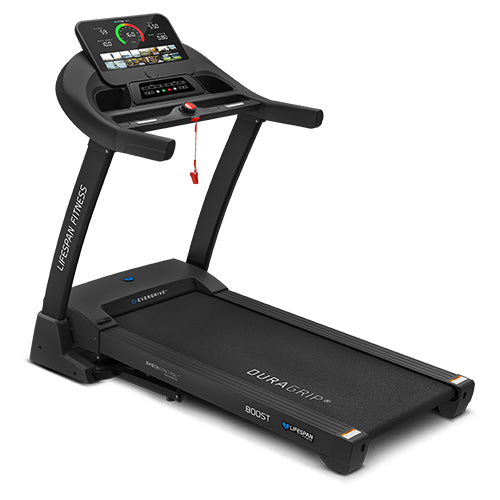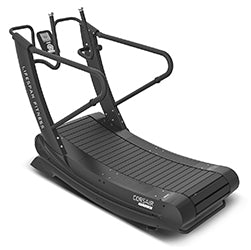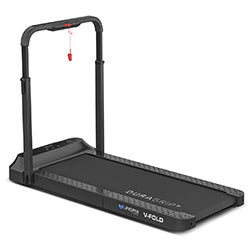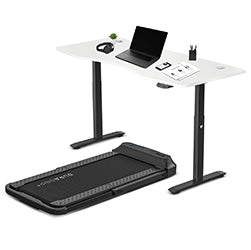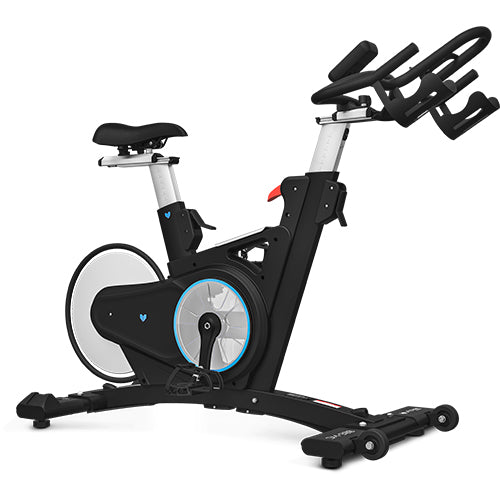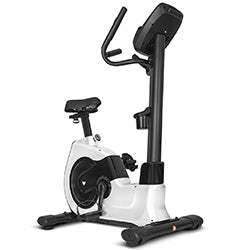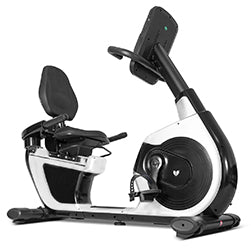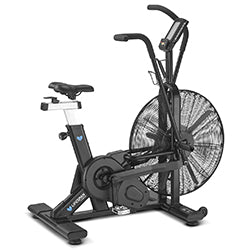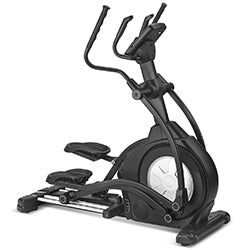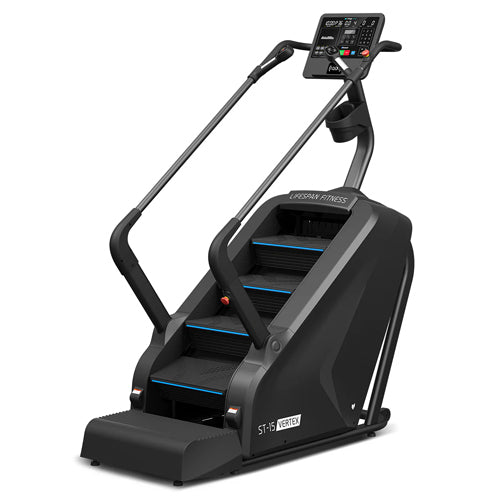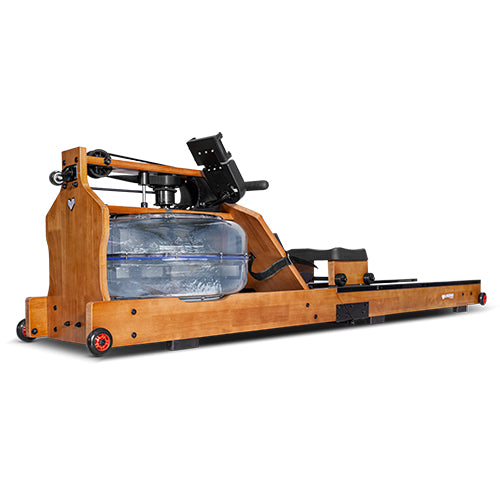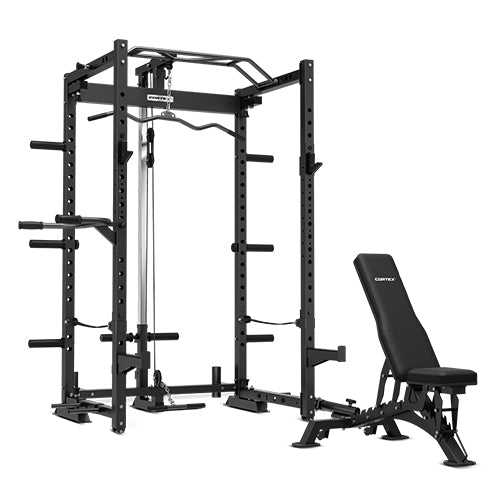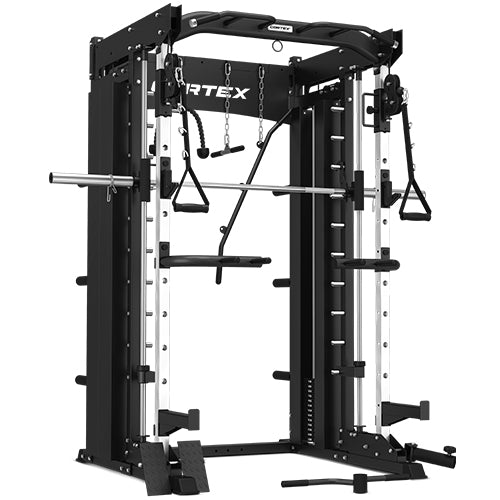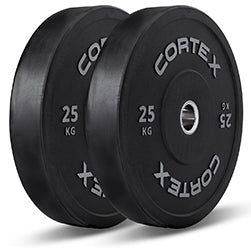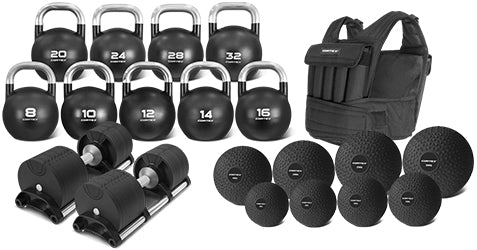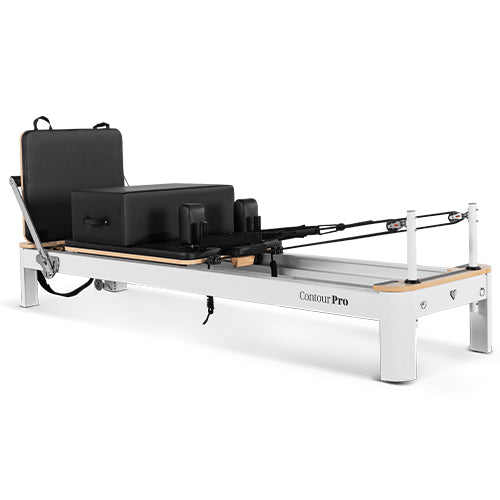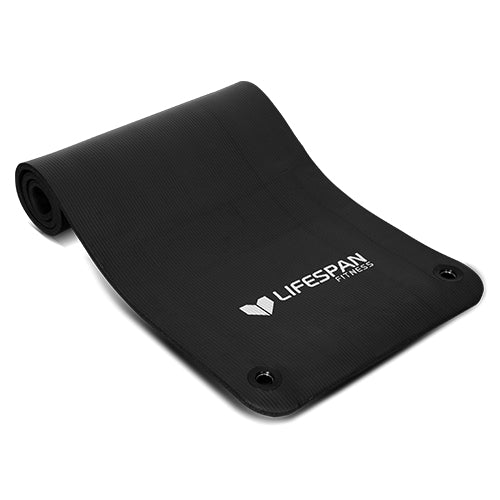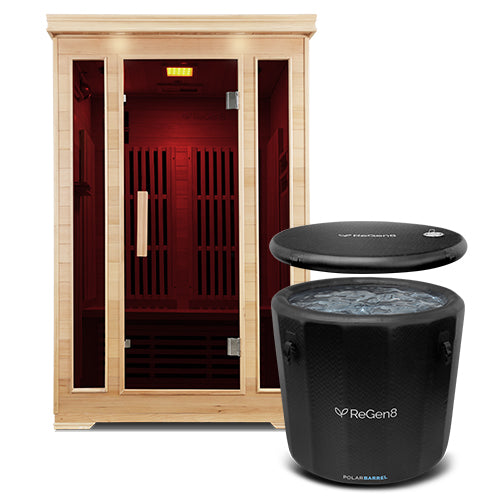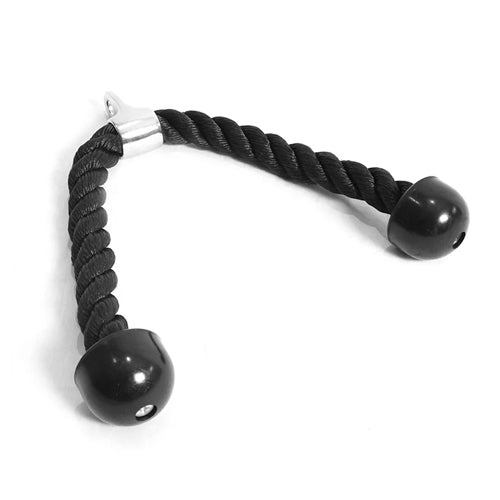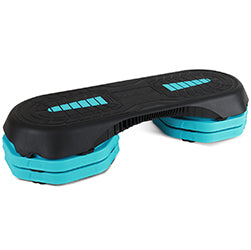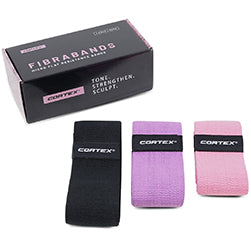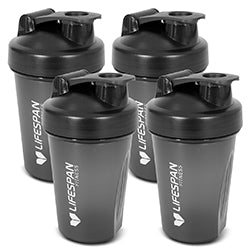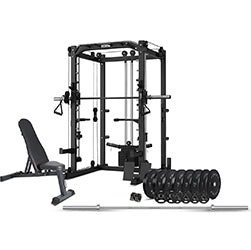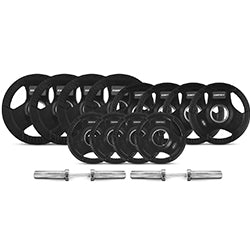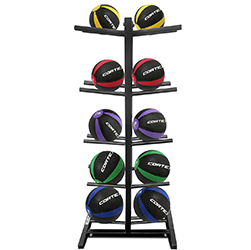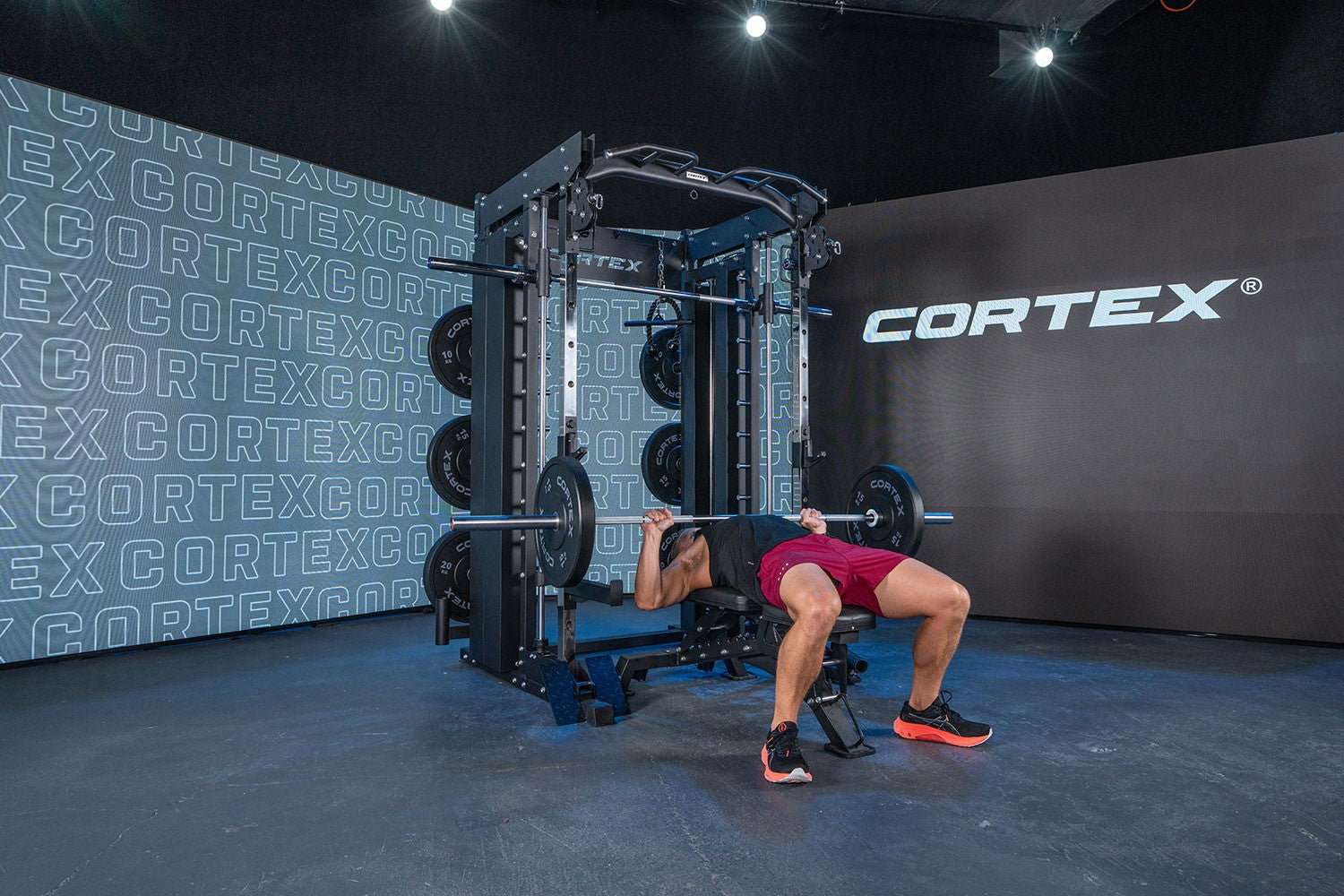

Commercial gym equipment is all about getting the absolute best workout experience possible. Designed for high-traffic, professional environments, commercial machines and gear are essential for anyone looking to put together a premium fitness space.
But what do you actually get when you choose commercial over home gym equipment? And is it worth it?
These are crucial questions when making your decision, which is why we’re here to give you the rundown on commercial equipment so you can be confident either way.
Popular Commercial Options:
Cardio Machines

No commercial gym is complete without a solid lineup of cardio machines. These machines are essential for heart health, fat loss, endurance training and warming up before resistance workouts. They’re also going to be the most heavily used pieces of equipment in any fitness facility, so they better be able to handle it.
Common Types of Commercial Cardio Equipment:
- Treadmills – Perfect for walking, jogging or sprinting. Commercial treadmills come with powerful motors, shock-absorbing decks and programmable workout options.
- Ellipticals – A low-impact option that simulates walking or running while being easy on the joints.
- Exercise Bikes – Includes upright, recumbent and spin bikes that cater to different fitness levels as well as rehabilitation and recovery.
- Rowing Machines – A full-body workout that improves both cardiovascular endurance and muscular strength.
- Stair Climbers & Step Mills– Great for lower body conditioning and high-intensity cardio workouts.
So, what makes commercial gym machines different in this category? They’re built with larger frames with commercial-grade steel, more stable platforms that can handle intense movement and components that will last longer. Plus, they often feature interactive touchscreens, preloaded training programs and connectivity to fitness apps for a more streamlined experience.
Multi-Functional Gym Stations

Commercial multi station gym equipment is a cornerstone of your strength setup. These all-in-one units combine multiple exercises into a single, compact footprint. They’re a staple in commercial gyms, as well as being popular for home gyms because of their compact yet multi-functional design.
A commercial multi-station gym equipment setup typically includes:
- Cable crossover
- Lat pulldown and seated row attachments
- Leg press modules
- Chest press and pec fly stations
- Pull-up bars, dip bars, and more
What makes them great is their versatility. You can perform a full-body workout without ever needing to switch machines. They’re ideal for:
- Circuit training
- Group workouts
- PT-led sessions
- Efficient solo workouts
Read up on the benefits of cable machines vs free weights with our blog post.
Functional Fitness

Functional training is one of the most important focus points in modern fitness routines. Unlike traditional weight machines that isolate specific muscles, functional fitness equipment and exercises aim to mimic real-life movement patterns. This works to improve mobility and strength for everyday activities.
In a commercial gym setting, a well-equipped functional training zone might include:
- Dumbbells and kettlebells
- Medicine balls and slam balls
- Battle ropes
- Resistance bands
- Plyometric boxes
- Weight vests
These tools allow for dynamic workouts that build full-body strength and improve movement efficiency.
Durability and Warranty
When you invest in commercial gym equipment with Lifespan Fitness, you can be certain that it can handle rigorous daily use in a commercial setting.
Materials Used
We use high-quality materials to ensure the longevity and performance of our equipment:
- Commercial Steel Frames: Our machines benefit from heavy-duty commercial-grade steel frames designed to endure tough workouts day after day.
- High-Performance Components: Equipment like our commercial treadmills are equipped with features like the EverDrive® H7AC Motor, which feature innovative, energy-efficient motor engineering technology and high-quality components.
Warranty Information
- Domestic Use Warranty: Warranty periods will differ depending on the product and can be anywhere between 1-5 years when used in a domestic environment.
- Commercial Use Warranty: Warranties for commercial use are determined by an account manager and will depend on the type of purchase and usage.
- Warranty Coverage: The warranty typically covers parts replacement but does not include call-out fees or labour charges.
For more detailed information on warranties and repairs, you can visit Lifespan Fitness's Warranty & Repairs page.
How To Care for your Machine
Keep it Clean
Sweat, dust and grime can wear down equipment fast. A simple wipe down with a cloth and mild cleaning solution is all that’s required here. Pay special attention to:
- Handles and grips
- Upholstery
- Console screens
- Weight stacks and adjustment knobs
Regular Lubrication

Lubricating your equipment is essential to keep moving parts running smoothly. This applies especially to:
- Guide rods (on weight stacks)
- Treadmill belts and decks
- Pulleys and cable systems
Follow the manufacturer’s recommended lubrication schedule and use the appropriate lubricant type. Avoid over-lubricating, which can attract dirt and cause build-up. You can find lubricant and other equipment accessories here.
Time to Time Inspection
Periodic checks can help you catch issues before they become major problems. Inspect:
- Cables for fraying or wear
- Bolts and nuts for tightness
- Welds and frames for cracks or rust
- Weight stacks and pins for alignment and function
Make it a monthly habit, or more frequently in high-traffic gyms.
Correct Usage
Misuse of a machine can lead to equipment failure and even injury. Consider:
- Posting usage instructions near machines
- Providing a gym induction for new members
- Training staff to identify and correct misuse
Scheduled Servicing
Even with perfect daily care, machines benefit from professional servicing. Schedule servicing every 6–12 months depending on the usage. Professional technicians can:
- Calibrate electronics and tension systems
- Replace worn-out components
- Perform deep cleaning and lubrication
- Update firmware or software (on smart machines)
When To Replace
Even the most durable commercial gym equipment has a lifespan. Regular maintenance can extend it, but eventually, all machines reach the point where replacement is the smarter (and safer) option. Knowing when to upgrade can help you avoid costly downtime, frustrated members and potential safety risks.
Here are the most common signs it’s time to replace your equipment:
Frequent Breakdowns
If a machine is constantly out of order it may be costing you more in downtime and maintenance than it’s worth.
Tip: Keep track of repair frequency and cost. If you’re calling a technician more than once every few months for the same machine, it’s time to consider a replacement.
Outdated Technology
Today’s gym-goers expect modern features like:
- Touchscreen interfaces
- Bluetooth and app connectivity
- Integrated heart rate monitors
- Real-time workout tracking
If your equipment lacks these features, or worse, can’t be upgraded, it may fall behind the general expectations of most users. Modern commercial gym machines offer smarter, more engaging workouts.
Wear and Tear
Some signs of aging are obvious:
- Cracked or torn padding
- Frayed cables or worn pulleys
- Loose bolts or rusted frames
- Unstable platforms or wobbly footplates
These aren’t just aesthetic issues, they're safety hazards. If repairs are no longer effective or feasible, replacing it is the safest option.
Conclusion

If you're ready to invest in long-lasting, high-performance equipment, explore the full range of commercial gear available at Lifespan Fitness. Search for commercial gym equipment in Melbourne, Sydney, Brisbane or any other major city. With expert advice and premium products built for Australian gyms, you're in good hands.




